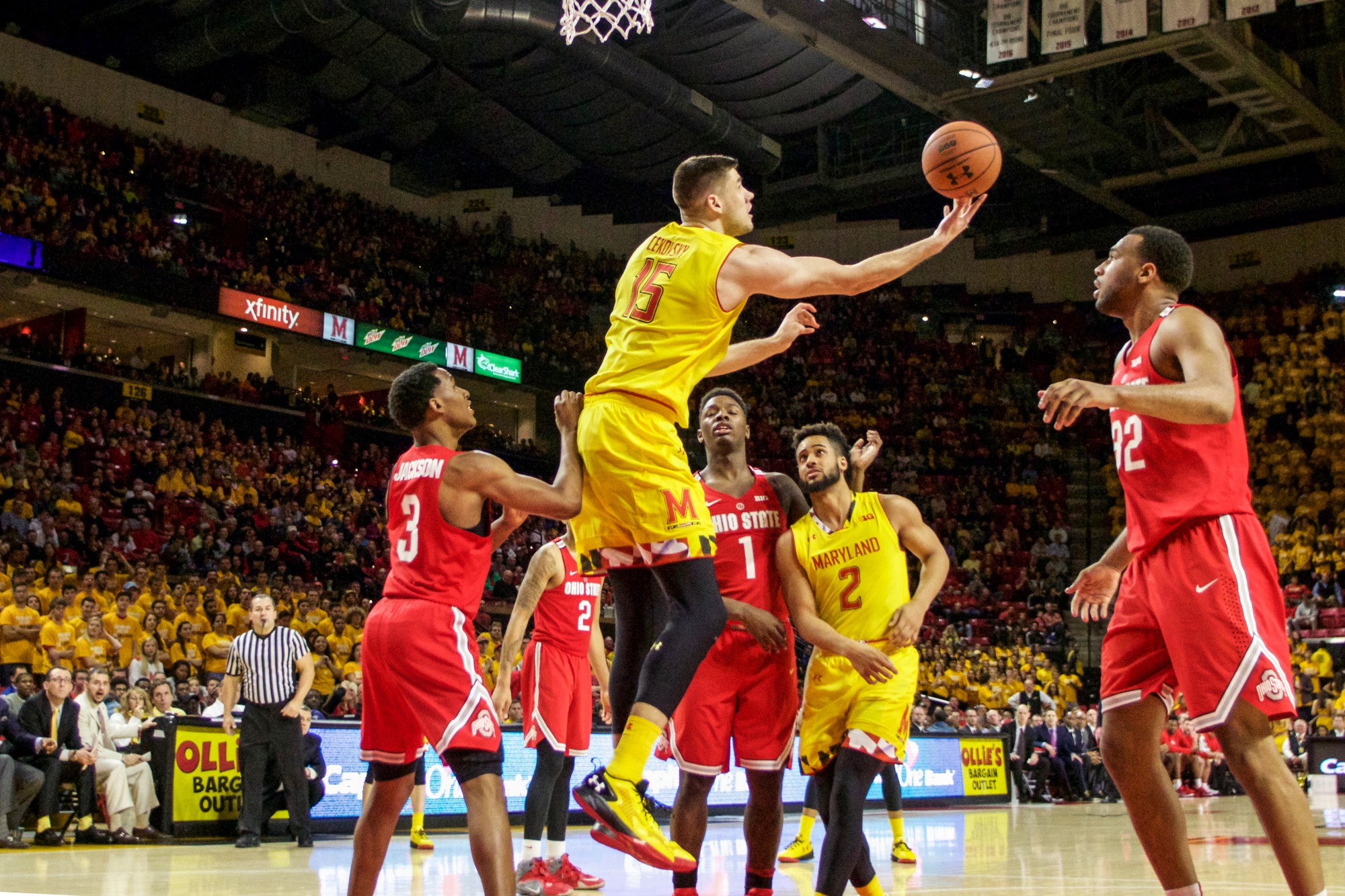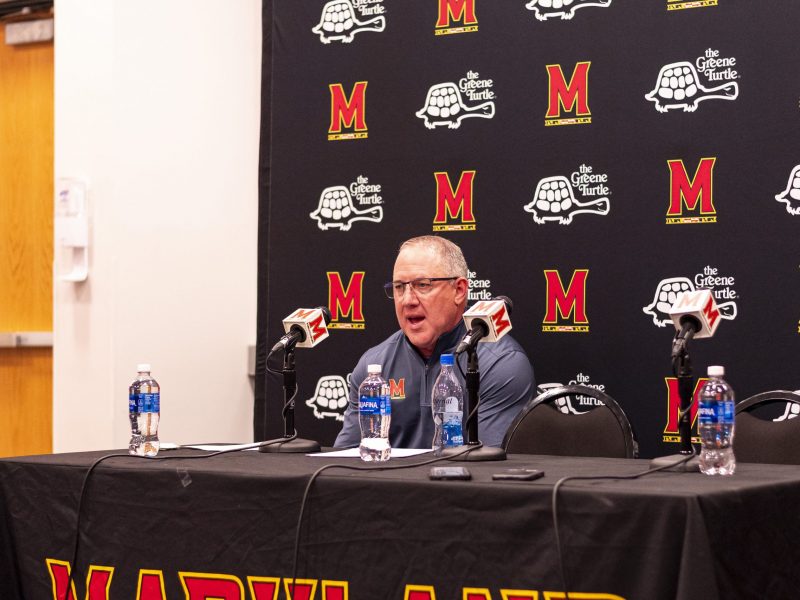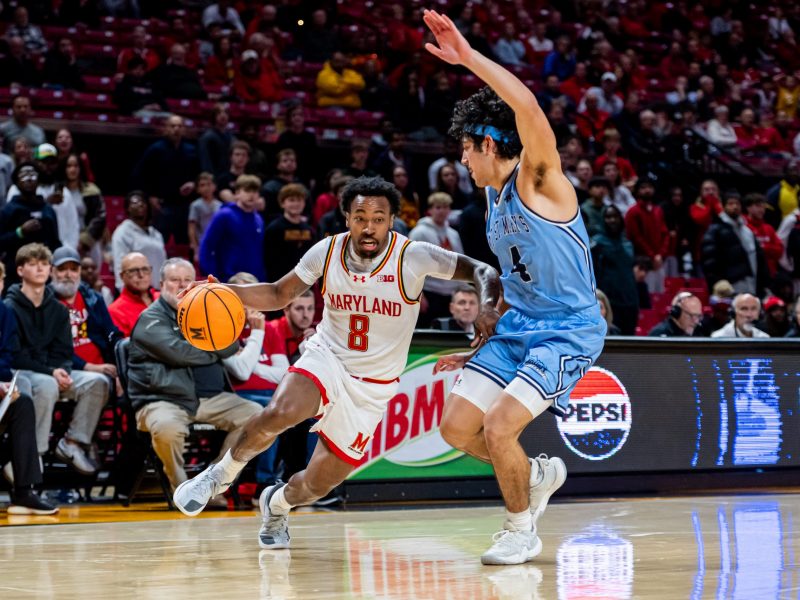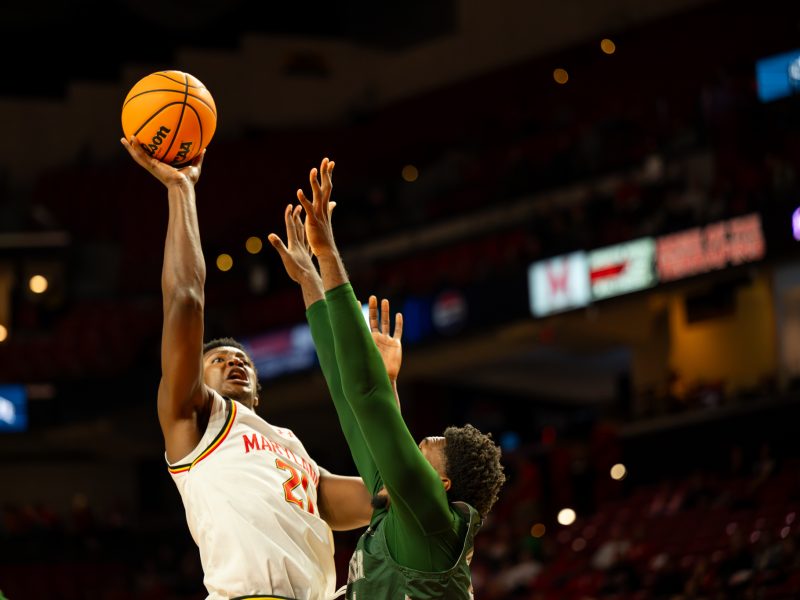The Maryland men’s basketball team is used to playing without a healthy frontcourt. Centers Damonte Dodd and Michal Cekovsky and forward Ivan Bender have each missed time this season with injuries.
So, coach Mark Turgeon said his squad wasn’t thrown off when it learned Cekovsky would miss the rest of the season with a fractured left ankle he suffered against Wisconsin on Sunday. Cekovsky missed six games to begin Big Ten play with an ankle injury, and he’s seen limited minutes since returning while Maryland’s reserve big men, such as Bender and forward L.G. Gill, took on bigger roles.
Guard Melo Trimble said the Terps (22-5, 10-4) have adopted a “next man up” mentality, which will be crucial for a frontcourt that has struggled rebounding this season. The No. 24 Terps hope that approach pays off when they play Minnesota (20-7, 8-6 Big Ten) at Xfinity Center on Wednesday night.
“We’ve had to do it all year,” Turgeon said. “We’ve had guys sick, a little bit injured and we’ve had little things that doesn’t make the media and you just hide it and play through it. Did Ceko give us something nobody else on our team could give? Absolutely. But our guys know they need to step up.”
Without Cekovsky, who averaged 7.6 points and 2.8 rebounds in 13.2 minutes per game, Turgeon said the Terps will need more production from Dodd, Bender and Gill. Dodd, who’s the lone starting big man, leads the team in fouls (68) and foul outs (three). The senior has played 19.2 minutes per game, nearly 10 fewer than any other Maryland starter.
When he’s on the court, Dodd is one of the Terps’ best defensive anchors, leading the squad with 41 blocks. But without Cekovsky, Turgeon said Dodd needs to play around 25 minutes per game for Maryland “to be great.”
“We’ve been talking about Damonte playing without fouling every game, even with Ceko,” Turgeon said. “We’ll continue to do that. He’s got to play a little bit smarter defensively. Hopefully playing at home will help him to be a little more aggressive, but be smart about it.”
Cekovsky’s absence may also force Gill to play center. The graduate transfer played mostly power forward at Duquesne last season, averaging 10.1 points and 1.6 3-pointers per outing. Still, he has experience at the five spot. He’s been forced to play there when other Terps big men have gotten into foul trouble.
Bender, meanwhile, is comfortable playing center but has struggled on offense, averaging 4.2 points per game and committing 26 turnovers. Cekovsky was perhaps Maryland’s most productive offensive big man while other frontcourt players have had problems creating their own shots.
“I wouldn’t say necessarily there’s any pressure,” Gill said. “I just look forward to playing every game like it’s my last. I’ve obviously played some games at the five. I have to continue to enjoy the process of learning a new position. If I hadn’t played the five in the past, it would be a different situation right now.”
Trimble said the Terps had a meeting Monday, which covered how important rebounding is for them to make a postseason run. Maryland holds the fourth-worst rebounding margin in the Big Ten (+0.8), and Cekovsky’s absence likely won’t help.
Still, the Terps know they can’t dwell on Cekovsky’s absence as they compete for the Big Ten title with four regular-season games remaining.
“We’re definitely going to miss him,” Trimble said. “He’s a really good finisher, defender and a really good rebounder. Our bigs are going to have to step up.”



